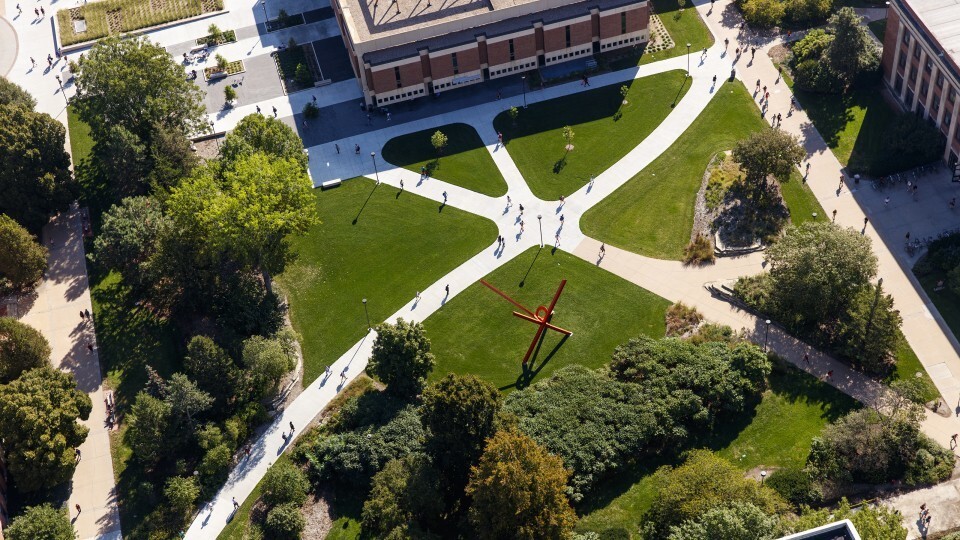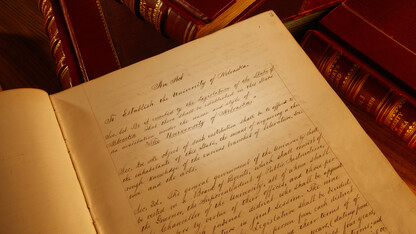
The University of Nebraska–Lincoln’s Commission of 150 held its first sessions with students April 3 in the Jackie Gaughan Multicultural Center and the East Union.
During the discussions, students offered input on academic choices, future economic needs of the nation and the world, and their take on what sets Nebraska apart from other institutions.
“The student voice in this is absolutely critical,” Linda Major, assistant vice chancellor for student affairs and commission member, said.
The Commission of 150 was established by Chancellor Ronnie Green with the task of developing a vision for the future of the university as it approaches a 150th anniversary in 2019.
Students have an additional opportunity to participate in the conversation at 5:15 p.m. April 4. A general session opens at 4:15 p.m. Both are in the in the Gaughan Multicultural Center’s Ubuntu Room.
Mark Power Robinson and Robert Filback of Academic Leadership Associates lead the sessions. Academic Leadership Associates is the consulting group facilitating the discussions and strategic planning for the commission.
“If you saw this headline in 10 years: ‘Why are students from the University of Nebraska-Lincoln so sought after?’ what would be your answer,” Robinson asked students at the first round of sessions. “What are their skills, their attributes, their attitudes that make employers and companies take notice?”
Hunter Traynor, a junior political science major and president of the Association of Students of the University of Nebraska, said he hopes the university continues to embrace its collaborative and congenial culture.
“I do think it’s something special,” Traynor said. “The thing that I hear from nearly everyone I interact with is about the positive disposition and attitudes of the people who call this university home.”
Traynor added that Nebraska students are innovative but need more opportunities to be entrepreneurial inside and outside the classroom.

The discussion then led to talks about changing the traditional major and minor model by allowing students to personalize courses of study.
Jeffrey Owusu-Ansah, a sophomore international business major, wants the university to find ways to be more environmentally sustainable.
“I would be a proud alum in 10 years if I could see that the university was waste free, had included real sustainability in its plans and followed through,” he said. “I think everyone would be proud of that.”
Owusu-Ansah said the university could find better and more consistent ways of encouraging students to diversify the groups they interact with on campus.
“We have a good international student population here and our diversity is growing, but I’ve noticed that people continue to hang out with others just like them,” he said.
Traynor said more than anything, he wants the university to keep pushing itself toward “finding its own niche.”
“I hear a lot about how we’re stacking up against our peer institutions in the Big Ten,” he said. “I say no, let’s do things our own way.”







